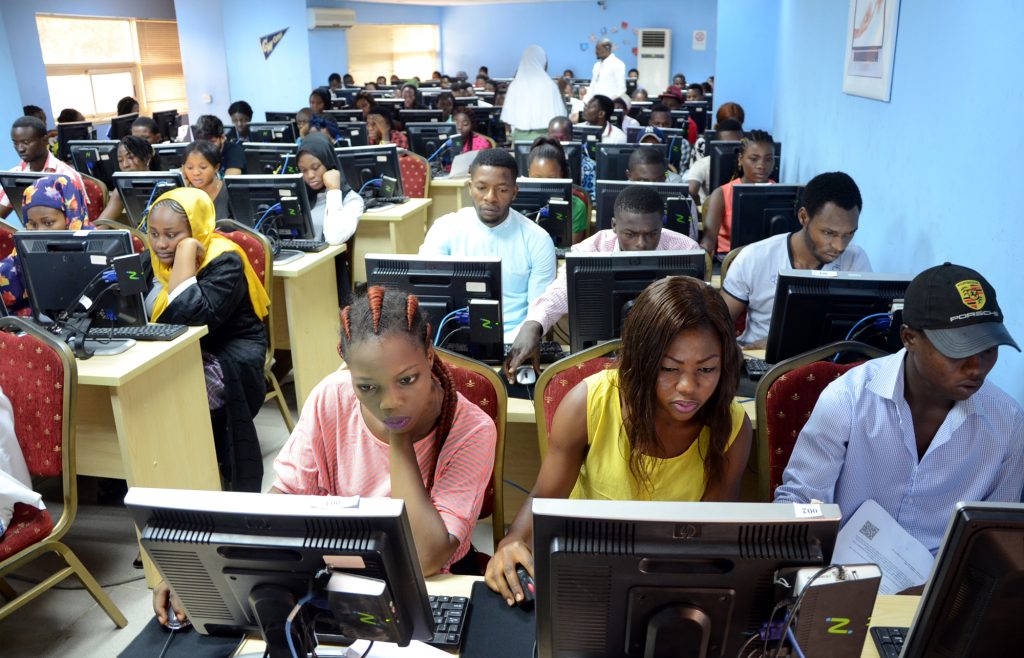The standard of education in Nigeria is falling drastically, and this revelation came to light on April 29 when the Joint Admissions and Matriculation Board (JAMB) published the results of the 2024 University Matriculation Examination (UTME). According to the report, over 76 per cent of the candidates scored below 200. This decline in performance raises concerns about the quality of education and the challenges faced by Nigerian students.
According to the results released, out of a total of 1,989,668 registered candidates across all 36 states of the federation and the Federal Capital Territory, only 1,842,464 candidates had their results officially released. 8,401 candidates scored 300 and above, while 77,070 candidates scored 250 and above. Additionally, 439,974 candidates scored 200 and above, leaving 1,402,490 candidates scoring below 200 indicating a significant decline in performance compared to previous years.
76 per cent of candidates scored below 200 out of 400, which is equivalent to less than a 50 per cent score. This performance indicates that most candidates are ill-prepared or unfit for university education. It’s a huge setback for Nigeria in a highly competitive global landscape. Already, Nigerian universities rank very poorly among their continental and global peers. If these underperforming candidates are admitted into institutions during the next session, it could further impact the overall ratings.
Over time, JAMB and a society that may have lost its core values have gradually lowered the cut-off mark for university admissions. Currently, the cut-off mark stands at 180 out of 400. Unfortunately, this shift has inadvertently entrenched mediocrity within the education system.
Parents, educators, candidates, and other stakeholders have engaged in ongoing discussions regarding the potential reasons behind the significant mass failure reported in this year’s examination.
The concern surrounding students’ performance in UTME is undoubtedly critical. Identifying the root causes and implementing effective solutions will be essential for improving the education system in Nigeria.
JAMB has arguably outlived its original purpose. The need for a unified examination to determine student admissions into tertiary institutions is being questioned. Thus, universities should be granted more autonomy in their admission processes.
Meanwhile, social media addiction and fraud have become focal points in the blame game. Nigeria is slowly descending into a state of moral decay, where young individuals no longer view education and hard work as the primary pathways to success.
There’s a concerning narrative taking root among today’s youth. Many young individuals no longer prioritise education, believing “school is a scam”. This sentiment reflects broader societal shifts and challenges in motivating students to value education.
In Nigeria today, even after years of schooling and graduating, many individuals find themselves without jobs. Instead, they often turn to learning practical skills or becoming vendors on social media. This situation has led some to perceive traditional education as a potential waste of time.
Over the years, the failure of all levels of government to make adequate investments in education has consistently contributed to mass failure in examinations and subpar academic performance. In many states, there is a severe shortage of qualified teachers, dilapidated school buildings, and a lack of essential learning resources and facilities.
JAMB also contributes to some of the challenges as during the examination, several technical glitches were reported. These included failed verification, erratic power supply, unreliable internet connections, and subpar service delivery by some operators at Computer-Based Centers. Unfortunately, some candidates were unable to complete their papers due to early computer lockouts. Addressing these issues is crucial to ensure a smoother and more reliable examination process.
Government at all levels must urgently reverse this concerning trend. Adequate attention must be devoted to education. An unhappy teacher cannot effectively nurture successful students, and no society can progress beyond the quality of its education sector. Parents and guardians should collaborate closely with teachers to safeguard the future of the younger generation. Additionally, society should refrain from glorifying fraudulent practices and instead emphasise legitimate pathways to success.
The government should prioritise job creation for graduates to enhance students’ interest in education. When students see viable career prospects after graduation, they are more likely to put in the effort to study.
Indeed, addressing unemployment and providing meaningful employment opportunities are crucial for motivating students and ensuring a brighter future.
